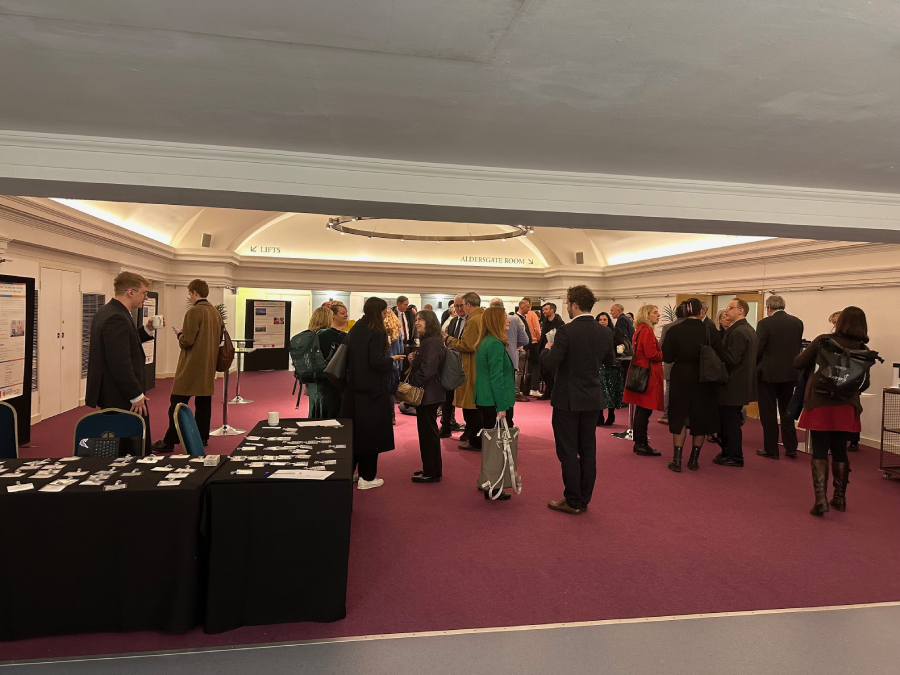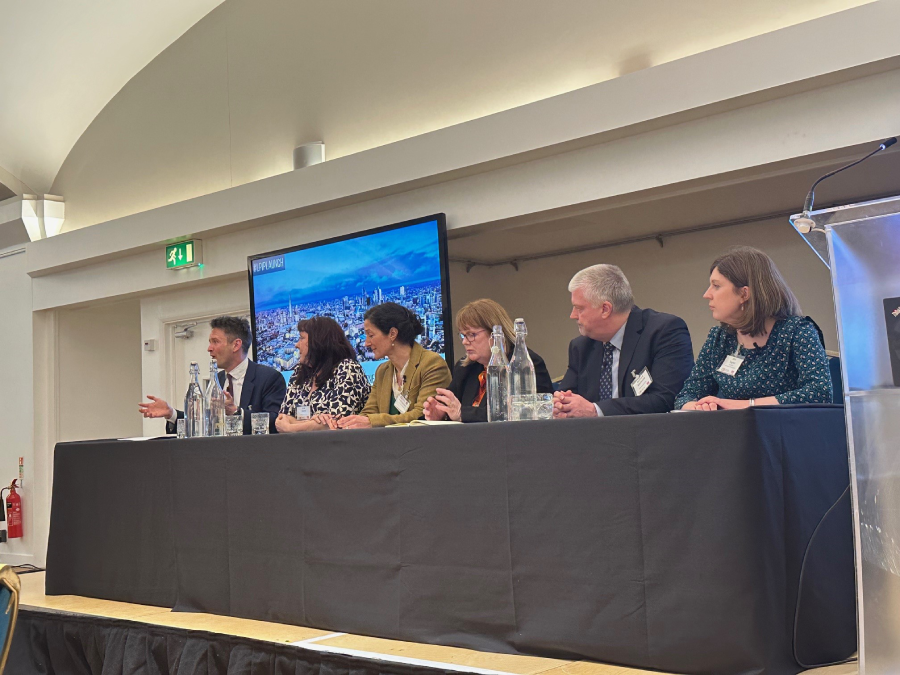
In this blog post, Rebecca Riley looks back at the launch of the Local Policy Innovation Partnership (LPIP) in Central London and provides a summary of the emerging themes from the post-event sessions and details on the 4 new partnerships.
The Local Policy Innovation Partnership Hub team has now recovered from the programme launch held on 27 February, so it’s time for me (as project lead) to reflect on the event and the sessions we arranged around it.
My main takeaway from the events, and indeed the whole programme so far, has been the level of commitment and enthusiasm everyone involved has had. Helping to improve the places we live, and the people we share our local lives with evokes a drive and determination different to other programmes of research and academic life. As academics engaged in local communities, we are part of the social fabric of our villages, towns, and cities in our day-to-day lives and work. This innovative new approach from UKRI as part of the creating opportunities and improving outcomes programme enables us to move this commitment to centre stage within our organisations.
This programme of shared endeavour has the potential to help drive the place agenda across UKRI and the government. Opportunity to change the ways of working are a core part of the programme, from UKRI, ESRC, AHRC, and InnovateUK, and their commitment to looking at different ways of delivering, trying new approaches and willingness to learn; to the local partnership leads and their commitment to their communities, and partners, willingness to broaden networks, learn from each other and create lasting change.
Greater investment in evidence-based policy locally has been eroded as austerity has eaten into the capacity of places, and research and intelligence roles and expertise have been lost. This programme will enable universities to actively work with local partners in developing new approaches to solving local challenges and look at rebuilding local capacity and capability.
This enthusiasm permeates the partners in the Hub, all ready to provide support for the local partnerships as they develop. We are also looking at how we build the wider network of place-engaged academics, how we support them in driving this civic agenda further and deeper, and how they can learn from the 4 trailblazer areas.
Over the 2 days, some themes emerged that will be important for the Hub to deliver on:
- Creating a collaborative ecosystem where people can learn from what works and doesn’t work – specific areas of immediate shared interest include data sharing, ethics, new models of collaborative working and governance, and influencing policy and funders. Everyone shares a commitment to finding better ways to involve and engage communities in these processes
- Develop approaches to breaking down some of the competitive cultures which have grown between places and their partnerships, due to the nature of local policy funding processes.
- Create a space to help partnerships connect, flourish, learn, and build relationships across boundaries and into national governments.
- Create a safe environment where innovation can occur, despite local structures where there is no room to fail because of lack of capacity and time.
- Developing best practices for policymakers and funders who want to encourage greater local partnership collaboration and ensure impact from funding.
This fits our core objectives of bridging the gap between local and national policy development; scaling up innovative and effective practice, deepening the knowledge base, and creating an environment that balances intellectual ambition and purposeful partnership locally.

The 4 successful partnerships are as diverse as the places they represent. Harnessing enthusiasm and local innovation for the benefit of the wider place partnership ecosystem is key to the success of the programme. Greater details of the partnerships will be shared by the Hub in the coming months as they are set up, see below for summary details:
- Rural Wales LPIP – led by Professor Michael Woods, Aberystwyth University. This partnership brings together researchers, community organisations, an enterprise agency and local communities. It gathers, shares, and applies evidence to local policymaking and innovation, for inclusive, sustainable growth in rural Wales. In particular, it will discover how growth can be achieved in a rural region where low population density, small-scale businesses, weak infrastructure and a dispersed labour market limit the effectiveness of conventional growth strategies.
- Stirling LPIP: optimising outcomes from water resources: raising levels in the Forth water basin lead by Professor Richard Simmons, University of Stirling. The project covers the region of the Forth water basin which includes the Firth of Forth and the capital city, Edinburgh. It builds innovative structures for making the most of an abundant local resource, water. The partnership will produce new evidence of water’s role in shaping better places to live, improving public health, and linking cultural and natural heritage. It will also produce new evidence on water’s role in promoting opportunities for businesses and jobs in the food and drink, agriculture, tourism, construction, energy, and biotechnology sectors.
- Yorkshire and Humber Policy Innovation Partnership, led by Professor Gary Dymski, University of Leeds. Yorkshire and Humber Policy Innovation Partnership (YPIP) is a collaboration of university, public, private and third-sector bodies in Yorkshire and the Humber. The project seeks to: empower low-income, marginalised and isolated communities across the region to participate in creating solutions to local challenges; increase access to and use of, data to inform local decision-making across the region; and expand opportunities for businesses and would-be entrepreneurs in the region, with a special focus on small and medium businesses, entrepreneurs from marginalised communities, and those engaged in the creative and cultural sector, and move towards net zero carbon and introduce measures to adapt to the changing climate in the region.
- EPIC Futures NI: collaborative research and innovation for policy and practice. Led by Professor Kristel Miller, Ulster University. The Northern Ireland LPIP aims to become a pioneering think tank, bringing together researchers, businesses, government and local communities in an open forum. It provides evidence for policy and programmes that support the economic and social prosperity of Northern Ireland. It will address economic inactivity, and low unemployment and target the ‘hidden unemployed’, individuals who would like to work but face barriers in doing so, within the economically inactive population.
Together the Hub and the 4 local partnerships are seeking to address the challenge of making local places ‘successful’. Ultimately the success of the programme will be demonstrated if UKRI and stakeholders see the LPIP programme pathway as an effective way of expanding place-based activities and programmes.
This blog was written by Rebecca Riley, Associate Professor for Enterprise, Engagement and Impact, City-REDI, University of Birmingham.
Find out more about the Local Policy Innovation Partnership Hub.
Disclaimer:
The views expressed in this post are those of the author and not necessarily those of City-REDI or the University of Birmingham.
